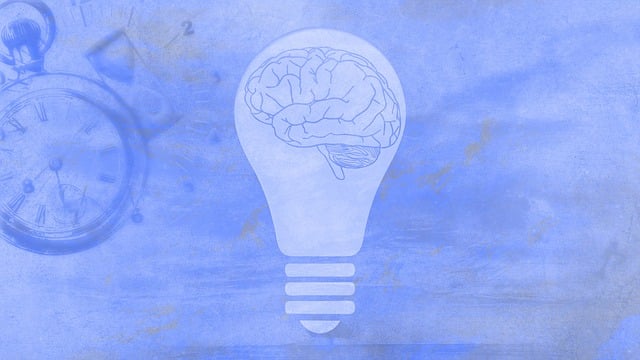
Delhi offers a range of therapeutic approaches for autism, each with its benefits and considerations. When searching for the best autism therapy in Delhi, it is crucial to consider several factors to ensure high-quality and effective interventions. The “best” therapy will vary depending on individual needs, preferences, and goals.
One highly regarded approach for autism therapy in Delhi is Applied Behavior Analysis (ABA). ABA is an evidence-based practice that focuses on behavior modification and skill development. Delhi-based ABA therapy providers employ structured techniques and positive reinforcement to teach new skills and reduce challenging behaviors effectively.
Another essential aspect of the best autism therapy in Delhi is speech and language therapy. Delhi-based therapists specializing in speech and language intervention work to improve communication skills and language development in individuals with autism. They utilize various techniques, including picture exchange communication systems (PECS) and augmentative and alternative communication (AAC), to enhance verbal and non-verbal communication.
Occupational therapy (OT) is also crucial to effective autism therapy in Delhi. OT aims to enhance daily living skills, sensory integration, and motor coordination. Delhi-based OT professionals employ specialized interventions to improve independence, self-care abilities, and sensory processing challenges commonly associated with autism.
What Therapy Approach Is Best For Autism?
When determining the best therapy approach for autism, it’s important to consider that what works best for one individual may not work for another. Autism is a complex neurodevelopmental disorder, and each person on the autism spectrum has unique strengths, challenges, and needs. Therefore, a personalized and individualized approach is crucial. That being said, several evidence-based therapy approaches have shown effectiveness in supporting individuals with autism. Here are some commonly recognized therapy approaches:
- Applied Behavior Analysis (ABA): ABA is a well-established and widely recognized therapy approach for autism. It focuses on behavior modification, skill development, and reducing challenging behaviors. ABA utilizes structured techniques and positive reinforcement to teach new skills and promote positive behavior changes.
- Speech and Language Therapy: Communication difficulties are common in individuals with autism, and speech and language therapy aims to improve communication skills, language development, and social interaction. Therapists at the best autism clinics in Delhi use various techniques to enhance verbal and non-verbal communication.
- Occupational Therapy (OT): Occupational therapy addresses daily living skills, sensory integration, and motor coordination challenges. It focuses on improving independence, self-care abilities, and sensory processing difficulties. The best autism clinics in Delhi often have experienced occupational therapists who provide specialized interventions.
- Social Skills Training: Many individuals with autism struggle with social interactions. Social skills training aims to teach appropriate social behaviors, social cues, and social understanding through structured interventions, role-playing, and group activities. The best autism clinics in Delhi may offer dedicated social skills programs or therapies.
- Cognitive-behavioral Therapy (CBT): CBT helps individuals with autism manage anxiety, understand and regulate emotions, and develop coping strategies. It focuses on identifying and modifying thoughts, emotions, and behaviors. The best autism clinics in Delhi may have qualified professionals who provide CBT interventions.
What Are The Newest Treatments For Autism?
As of my knowledge cutoff in September 2021, there have been ongoing research and developments in the field of autism treatment. While it’s essential to consult with medical professionals and stay updated with the latest research, here are a few emerging and potential treatments for autism:
- Early Intervention Programs: Early intervention programs provided at autism spectrum disorder centers in Delhi focus on providing support and therapies to children with autism as early as possible. These programs aim to address developmental delays, improve social and communication skills, and enhance overall functioning.
- Technology-Assisted Interventions: Technology has been increasingly utilized in autism treatment. Innovative tools such as virtual reality (VR), social robots, and wearable devices are being explored at autism spectrum disorder centers in Delhi to assist in social skill development, communication training, and behavior management.
- Medications: While no medication can cure autism, certain medications may help manage specific symptoms or co-occurring conditions. For example, medications may be prescribed at autism spectrum disorder centers in Delhi to address anxiety, attention difficulties, or sleep disturbances commonly associated with autism.
- Nutritional and Dietary Approaches: Some studies have explored the impact of dietary interventions, such as gluten-free and casein-free diets, on reducing certain behavioral symptoms in individuals with autism. However, more research is needed to establish the effectiveness of these approaches at autism spectrum disorder centers in Delhi.
- Non-Invasive Brain Stimulation: Techniques like transcranial magnetic stimulation (TMS) and transcranial direct current stimulation (tDCS) are being investigated as potential treatments for autism at autism spectrum disorder centers in Delhi. These non-invasive brain stimulation methods aim to modulate brain activity and improve specific symptoms of autism.
Is DBT Good For Autism?
Dialectical Behavior Therapy (DBT) is a therapeutic approach that was initially developed to treat borderline personality disorder. While DBT has shown effectiveness in addressing emotional dysregulation, self-destructive behaviors, and difficulties with interpersonal relationships in individuals with borderline personality disorder, its applicability and effectiveness for autism spectrum disorder (ASD) is still a topic of ongoing research and debate.
Some research studies have explored the potential benefits of adapting DBT principles and techniques for individuals with ASD who experience emotional dysregulation and behavioral challenges. These studies have suggested that certain aspects of DBT, such as mindfulness practices, emotion regulation skills, and interpersonal effectiveness, may be helpful for individuals with ASD seeking autism therapy in Delhi.
However, it’s important to note that DBT is not specifically designed for autism, and the evidence regarding its effectiveness in treating core symptoms of ASD is limited. Autism therapy in Delhi focuses on interventions that directly target core symptoms, such as applied behavior analysis (ABA), speech and language therapy, and occupational therapy. These therapies are widely recognized and have effectively addressed social communication difficulties, repetitive behaviors, and sensory sensitivities associated with autism.
While DBT may offer some benefits for certain individuals with autism who struggle with emotional regulation and co-occurring mental health conditions, it is recommended to consult with professionals experienced in both DBT and autism therapy in Delhi to determine the appropriateness and individualized treatment approach for each person. The effectiveness and suitability of DBT for autism may vary depending on the specific needs, strengths, and goals of the individual seeking autism therapy in Delhi.
Conclusion
In conclusion, exploring therapeutic approaches for autism in Delhi and elsewhere requires a comprehensive understanding of the individual’s unique needs and characteristics. While there is no definitive answer to which therapy approach is best for autism, several evidence-based interventions have shown effectiveness in supporting individuals with autism spectrum disorder (ASD).


